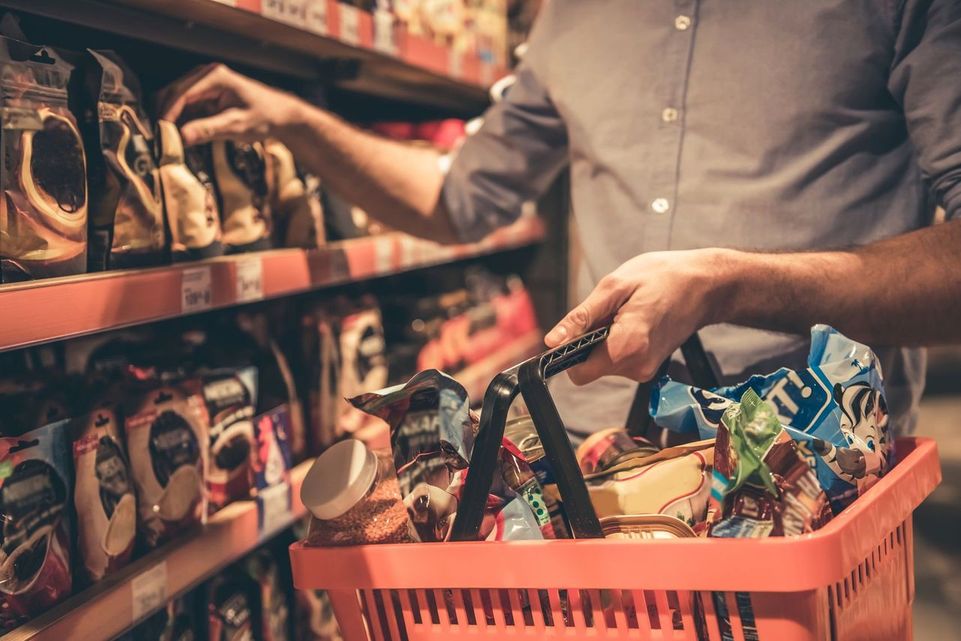How To Cut Costs As Prices Continue To Surge
As the saying goes, sometimes you have to take the bad with the good.
Let’s start with the good.
- By most accounts, the U.S. labor market is strong.
- Unemployment has dropped from its pandemic-era high of almost 15% down to 3.5%.
- Workers feel good about their earnings: a University of Michigan report revealed that over half of consumers expect their incomes to grow during the next year.
But amidst all the good news, bad news can rear its ugly head.
- Inflation is still dogging the economy at 8.5%.
- Nearly 53% of Americans expect that their incomes will be outpaced by price increases as the year goes on.
- For many families, today’s economy necessitates cuts in spending and tightening budgets.
Fortunately, there are numerous ways to save without having to make severe sacrifices. Read on to learn how you can cut back in ways that won’t leave you feeling like you’re miserable, miserly, and missing out.

Food For Thought
It’s an unwelcome fact: the cost of living is set to outpace the average income in 2022, according to Steven Fazzari, professor of economics at Washington University in St. Louis. He foresees that Americans will need to consider cutting back on discretionary purchases like eating out, travel, and entertainment in order to focus on necessities.
“This kind of adjustment is always necessary when households face a financial squeeze, but it’s more severe in the current circumstances because price increases have been concentrated especially for necessary items like gas, groceries, and rent,” says Fazzari.
According to statistics, food prices rose 1.1% in July, bringing their yearly inflation rate up to 10.9%. It appears Americans have already started to make changes that will allow them to adapt to increasingly steep food bills. According to a survey by Morning Consult, more than 80% of consumers reported dining out less frequently, and approximately 75% are frequenting bars less. In terms of grocery shopping, 72% of Americans are purchasing less meat, and 68% are buying less alcohol than they did in previous years.

Let Your Mind Wander, But Consider Traveling Less
According to Ori Heffetz, an associate professor of economics at Cornell University, consumers who are considering lifestyle cutbacks often where they “feel they get the most bang for the cut-back buck.”
And travel, it seems, is a good place to start.
Between March and April of 2022, plane ticket prices rose nearly 19%, the largest month-over-month increase for airfares on record, according to data from the Bureau of Labor Statistics. By the end of July, prices were up 27.7% from the same time last year.
A recent report from Destination Analysts indicates that a declining number of Americans feel that leisure travel is a good way to spend money. While 39.2% believed it was a “good or very good time” to spend on a vacation in the first quarter of 2022, that number dropped noticeably to 32.6% in the second quarter. Half of the survey respondents indicated that high travel costs were the reason they were holding off on making travel plans.

Getting Used To Less Gas Usage
It’s not surprising that gas prices have been a source of angst for many months, says Fazzari. “Perceptions of economic turmoil are heightened when the prices of things everyone buys go up dramatically. But these fears may be exaggerated. Gas prices are scary, but they are already moderating and, if they stay elevated, people will adjust,” he adds.
In June, gas prices in the majority of the country surpassed the $5 per gallon mark, and data from the U.S. Energy Information Administration indicates that drivers have been changing their hit-the-road plans accordingly. The result: gas sales dropped 5% in June compared to pre-pandemic levels, and 2.6% from a year ago.
Fazzari anticipates that “there will likely be some slowing of consumption, but the problems do not look bad enough at this point to make a recession, especially a moderate to severe recession, a foregone conclusion.”

Replacing Things That Are Old Can Be Put On Hold
Higher prices often mean that consumers need to consider holding off on upgrading or replacing durable goods, like washers, dryers, or televisions.
“When they feel squeezed, households not only postpone replacing things they don’t absolutely have to replace right now, they also cut back on whatever is perceived to be getting more expensive faster than, or relative to, other things,” says Heffetz.
As a means of tightening their belts, consumers may opt for driving an older car for another year or two instead of purchasing a newer – and no doubt more expensive – model. The Kelley Blue Book indicates that new car prices hit a record high in July, with the average transaction price coming in at $5,126 more than in July 2021.
